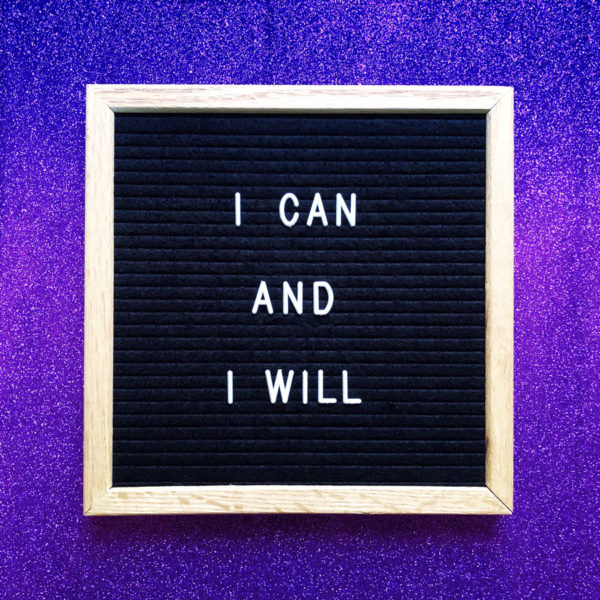7 Steps to Help You Create Positive Change
in Your Life and Work
“There is always a step small enough from where we are to get us to where we want to be. If we take that small step, there’s always another we can take, and eventually a goal thought to be too far to reach becomes achievable.”
– Ellen Langer, PhD
During these challenging times, many of us are trying to create positive change in our personal or professional lives.
Would you like to:
- Organize your space – office, garage, closet, etc.
- Eat more healthfully
- Make a career change
- Learn something new; take a class
- Lose a few pounds
- Organize your photo collection
- Exercise more regularly
- Begin a new hobby or activity
- Manage your time more effectively
- Meditate daily
- Or something else?
If you’re considering tackling a new goal, how ready are you to take the necessary actions needed to achieve it? Psychologists have found that successful change is a process that involves awareness, growth, and commitment.
7 Steps to Help You Create Positive Personal Change
1 – Understand the process of successful personal change.
Will you get started and persevere, or will you give up? Readiness for personal change is an essential ingredient for successfully tackling and reaching our goals. Decades of research on behavior change show that it’s important to be ready. Behavior change typically unfolds gradually as we move from little or no awareness/interest, toward considering the change, to planning and taking specific actions (Zimmerman et al, 2000). By understanding the readiness process, we can proceed more effectively and with less discomfort.
Researchers Prochaska, Norcross & Diclemente (1995) outline a cycle of six stages of successful personal change. Knowing about these steps can help us increase our chances to successfully navigate toward our goals.
Here’s a brief summary of the six stages of change (Prochaska et al, 1995):
Readiness Stage 1 – Not yet thinking about it (pre-contemplation). We have little or no awareness that the behavior is a concern or causes negative consequences; no intention to change or feel unable to change.
Readiness Stage 2 – Beginning to think about it (contemplation). We see positives about making the change. We begin to consider moving in that direction, but have no true intention to take action.
Readiness Stage 3 – Planning, setting goals, and beginning small steps (preparation). We are developing specific plans to create action within the next month and may already be taking steps toward the change.
Readiness Stage 4 – Taking steps to make it happen (action). We are actively changing behaviors and making choices to move forward. Coping with challenges, we are building momentum toward the chosen personal change.
Readiness Stage 5 – Keeping it up – sustaining the change (maintenance). We have made the changes and achieved the goal for a significant period of time; we actively intend to continue going forward.
Readiness Stage 6 – It’s a well-practiced, long standing habit (termination). The new behavior is automatic and it’s no longer a temptation to return to the old behavior.

2 – Figure out how ready you are. If you’re considering a change, here are a few questions to help you identify your state of readiness:
- What are the benefits of changing this behavior? How will your life be different?
- What are the potential negative consequences of this behavior?
- What are your concerns about changing this behavior?
- How does this behavior, or lack of it, get in the way of your ability to achieve your goals in life/work?
- How important is making this change?
- How ready are you to commit to what it takes to change?
3 – Identify what you want to change. Be specific about what you want to change and set a clear goal. Clear goals are specific, measurable, achievable, realistic and time-limited. It can help to understand why this goal is important to you and how achieving it will benefit you.
4 – If you feel ready to begin preparation or action, consider these questions:
- Are your goals and plans realistic?
- What support system can you call on for encouragement or to help you hold yourself accountable?
- What obstacles might get in the way and how can you deal with them?
- How will you celebrate successful milestones along the way?
Click here for more information on getting started.
5 – Consider your sense of self-efficacy. Self-efficacy means believing that you have the ability to do what you say you’ll do. When you believe you are capable of beginning and maintaining a behavior, you’re more likely to work toward and achieve your goals (Bandura, 1994). When your sense of personal efficacy is higher, you may be more firmly committed to achieving your goals. Strategies such as observing others as role models, visualizing yourself taking action and achieving success, and talking about your wins can help you improve your self-efficacy.
6 – Lean on your support network. Consider partnering with a friend, colleague, or ICF Certified Professional Coach to help you generate wins on your path toward your goals.
A coach can encourage you to (Moore et al, 2016):
- Assess your readiness for change.
- Build your self-efficacy.
- Choose and implement goals, strategies, and accountabilities to help you do what you say you will do.
- Set clear, measurable steps to create action and assess your progress.
- Develop contingency plans identifying what you will do when things don’t go as planned.
- Get motivated and maintain your momentum.
- Rebound more quickly from setbacks.
- Improve your chances to create the successful and long-lasting changes you choose to work toward.
7 – Persevere toward your goal taking one step at a time. Start with the first step. Determining whether you are ready to create change and actually making meaningful change happen is a process that begins with the first step. Each individual action can take you toward the change you hope to achieve.
Your comments and suggestions are welcome!
Click here to send Ilene an email with your thoughts about this blog post.
Resources:
- Bandura, A. (1994). Self-efficacy. In V. S. Ramachaudran (Ed.), Encyclopedia of human behavior (Vol. 4, pp. 71-81). New York: Academic Press. (Reprinted in H. Friedman [Ed.], Encyclopedia of mental health. San Diego: Academic Press, 1998.
- Berns-Zare, I. (2020). Six powerful ways to build new habits.
- Berns-Zare, I. (2018). Just start: You don’t have to like it to do it.
- Langer, E.J. (2009). Counter clockwise: Mindful health and the power of possibility. New York, NY: Ballantine Books.
- Langer, E.J. (2016). The power of mindful learning. Boston, MA: DaCapo Lifelong Books.
- Moore, M.,Jackson, E., Tschannen-Moran, B. (2016). Coaching psychology manual, (2nd ed.). Philadelphia, PA: Wolters Kluwer.
- Prochaska, J.O., Norcross, J.C., Diclemente, C.O. (1994). Changing for good: A revolutionary six-stage program for overcoming bad habits and moving your life positively forward. New York, NY: HarperCollins.
- Zimmerman, G.L., Olsen, C.G., Bosworth, M.F. (2000). A ‘states of change’ approach to helping patients change behavior. American Family Physician, 6(5), 1409-1416.
Copyright © 2020 Ilene Berns-Zare, LLC, All Rights Reserved
Ilene is a Featured Author on PsychologyToday!
Read her blog series Flourish and Thrive: Navigating transitions with mindfulness and resilience.

What behavior would you like to change?
Tap into your strengths, purpose, and potential to flourish in life and work.
I have a couple of spots open for new coaching clients. If you’d like to discuss how Ilene Berns-Zare Coaching can help you achieve your goals, Contact Ilene.
Coaching with Ilene Can Help You Call Yourself to Action
Ilene Berns-Zare, PsyD, PCC, CMC (ICF Credentialed) is an Executive and Personal Coach and Speaker. Ilene helps people live their best personal and professional lives by bringing mind, body, and spirit into flow with strengths, purpose, and potential. She inspires clients to find fresh perspectives and access their full potential as creative, resourceful, whole persons. Find Ilene online and access free resources at https://ibzcoaching.com/.
FREE Discovery Coaching Consultation
How can coaching help you maximize your personal and professional potential? During this FREE telephone consultation, we become acquainted, explain the coaching process, and mutually establish if we would be a good fit as a coaching team. We discuss your objectives, and how coaching can help you bring out the best in yourself as you strive to reach your most important personal and professional goals. Click here to contact Ilene.
In light and empowerment,
Ilene
Please share this blog with anyone who might be interested in reading it!
We would love to hear from you! We are interested in your suggestions for this newsletter, your reactions to this one, or providing more information about coaching.



